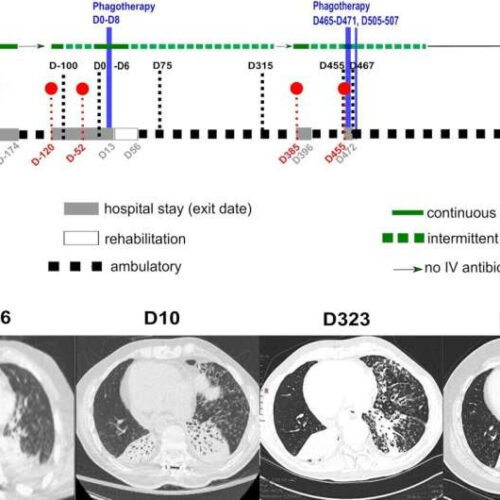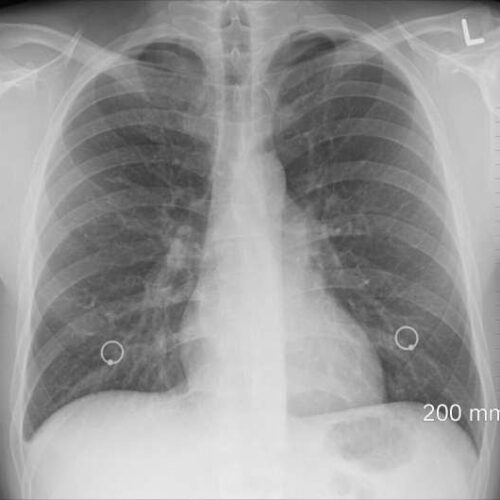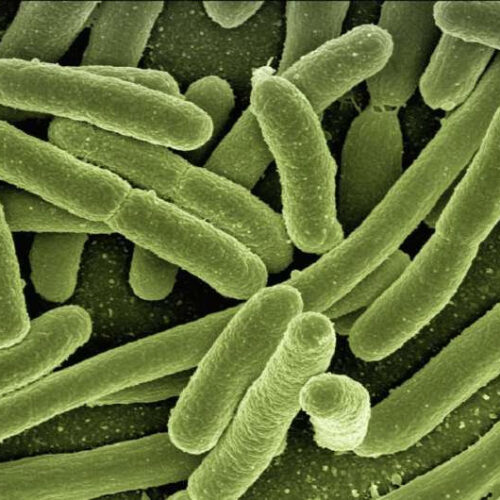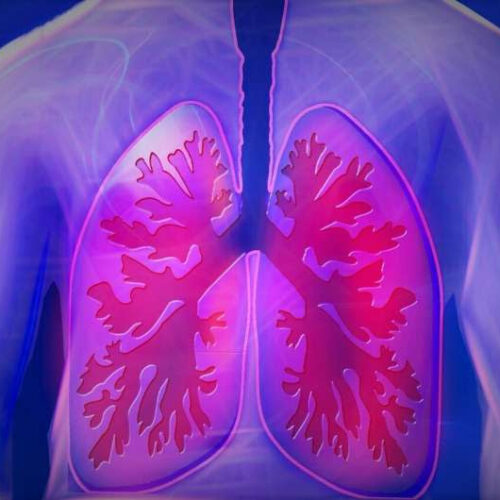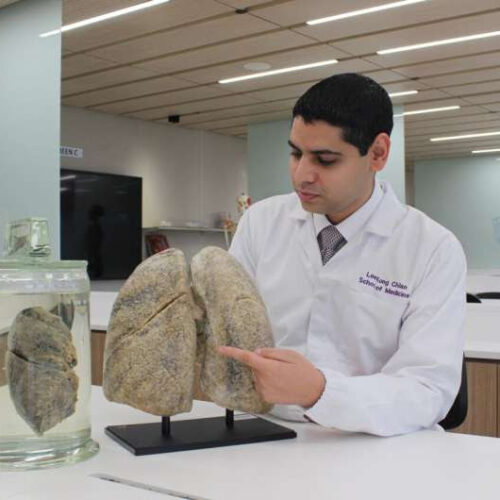Findings suggest anti-IL-13 antibodies as treatment to protect against bacterial pneumonia in patients with zinc deficiencyPeer-Reviewed Publication Vanderbilt University Medical Center Dietary zinc deficiency promotes lung infection by Acinetobacter baumannii bacteria — a leading cause of ventilator-associated pneumonia, according to a new study published Nov. 15 in the journal Nature Microbiology. A Vanderbilt University Medical Center-led...
Tag: <span>lung infection</span>
Patient with antibiotic-resistant lung infection saved with bacteriophages
by University of Geneva Patient treatment, follow-up and sample collection. a Antibiotic treatments are indicated by green horizontal lines and phage therapies by blue vertical lines. P. aeruginosa isolates selected for genotypic and phenotypic analysis are shown above the black-dotted vertical lines. Numbering of isolates and events is in reference to the day of the first...
Lung infection caused by a little-known bacterium may be less transmissible than thought
by Illima Loomis, Harvard Medical School Credit: Pixabay/CC0 Public Domain A little-known bacterium—a distant cousin of the microbes that cause tuberculosis and leprosy—is emerging as a public health threat capable of causing severe lung infections among vulnerable populations, those with compromised immunity or reduced lung function. Previous research had found that various strains of the bacterium Mycobacterium abscessus...
First successful treatment of antibiotic-resistant mycobacterial lung infection with bacteriophages
by National Jewish Health Credit: CC0 Public Domain For the first time, researchers have successfully used bacteriophages—viruses that kill bacteria—to treat an antibiotic-resistant mycobacterial lung infection, clearing the way for a young National Jewish Health patient with cystic fibrosis to receive a life-saving lung transplant. The successful use of phages to treat a Mycobacterium abscessus...
Nanotechnology could make a huge difference in treating a lung infection often associated with COVID-19 ventilation
by University of Central Lancashire Credit: CC0 Public Domain Treatment for fungal lung infections could be more efficient when medication is inhaled using nanoparticle technology, according to research from the University of Central Lancashire (UCLan). The early findings of the study, published in Journal of Nanobiotechnology, are of particular significance as many people with lung diseases...
Bacteria, viruses and fungi work as a network in causing lung infection
by Nanyang Technological University Through studying patients with bronchiectasis, a chronic lung condition, NTU Lee Kong Chian School of Medicine’s (LKCMedicine) Asst Prof Sanjay Chotirmall and his interdisciplinary team showed that the microbes in the body exist as a network, and that an infection’s severity could be a result of ‘negative interactions’ between these microbes –...

